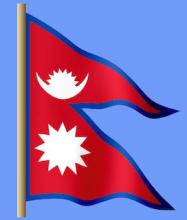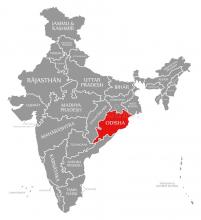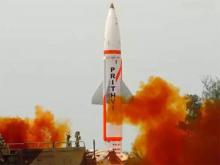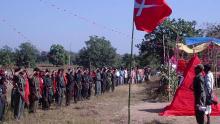-

Democracy is the most widely admired political system, but perhaps the most difficult to maintain. Democracy begins with excellent objectives in human governance with unquestionable intensions to impart freedom from injustice and social exclusion. It is characterised as a system in which expectations are raised because people identify themselves with the polity. There has been a greater urge for opening up the space for participation and competition in a state like Nepal which had a long history of monarchical domination.
-

Where Coal is gold, children’s education can be dumped! As the name suggests, the mining-savvy Orissa government has followed this in a small Matulu Camp village, a resettled habitation in the Rengali block of Sambalpur district in Orissa. There was a ‘school’, up to class 5th, in this village just three years ago. But, the school is now reminding a World War II concentration camp, where about 100 children of ten classes are being forced inside a dingy 20/15 ft room community centre building.
-

India’s space research programme has leaped to a new high with the successful launch of the Polar Satellite Launch Vehicle (PSLV-C7) from Sriharikota, Andhra Pradesh, carrying four satellites, including a recoverable spacecraft on January 10, 2007. This group of four satellites constituted of two Indian makes and two foreign satellites. The foreign satellites belong to the category of micro and nano satellites weighing 56 and six kg respectively.
-

Since July 2005, a great deal of debate on the Indo-US nuclear cooperation has been focused on the separation of Indian civil and military facilities, especially fast breeder reactors (FBR). The rationale of New Delhi’s quest for energy security compromising its strategic interests has been widely questioned within political circles, among scientists and activists.
-

Every consent is manufactured on the basis of the kind of information disseminated. With the revolution in information technology (IT), public perception has been shaped in varied ways and on varied aspects for varied lengths. However, some issues remain in vogue in the public domain for decades owing to their perceived relative impact on human civilization. Here, the kind and nature of information disseminated on a phenomenon is more crucial than the real nature of the phenomenon itself. One such example is the idea of nuclear technology.
-

Following the high profile assassinations of Alexander Litvinenko, a former KGB (erstwhile Soviet Union’s secret service-Komitet Gosudarstvennoy Bezopasnosti) agent in November 2006, the British investigators found that Litvinenko’s killers used polonium-210, a rare radioactive element worth over $10 million to poison him.
-

India has put its first successful step in the arena of ballistic missile defence by conducting a successful but surprise test of a new interceptor missile in late November over the Bay of Bengal. This missile, named AXO (Atmospheric Intercept System), was fired from the Wheeler Islands off Chandipur in Orissa. In fact, AXO is a modified version of Prithvi-II specially manufactured for this test. It intercepted another surface-to-surface Prithvi-II missile.
-

With a growing economy and increasing population, India’s energy demands are mounting. The household sector is the largest consumer of energy in India, accounting for 40-50 per cent of the total energy consumption in the country. In rural areas, the domestic sector accounts for nearly 80 per cent of total energy consumption. It has been estimated that with the current rate of consumption, India would require over 450 million tones of coal, 94 million tones of oil and 220 million units of electricity by 2006 to sustain its energy needs.
-

Despite many pioneering works in developed countries, defence economics has few takers in the developing world, including India, where the subject's relevance has not been comprehended until now. Even at present, many security analysts question the utility of the application of economic principles in the strategic sector!
-

The Maoists (also known as Naxalites) in India are encouraged by the recent success of their Nepalese counterpart, who emerged as a legitimate power center after a decade of protracted people’s war. The effects are already visible in Bihar, the neighbouring Indian State. Despite convoluted security arrangements by the Bihar Police, the partial success of the Bandh (general strike) on Oct. 30, 2006, by the Maoists indicated that they were capable enough to strike at their will.
Paxton ported to drupal by DropThemes.in